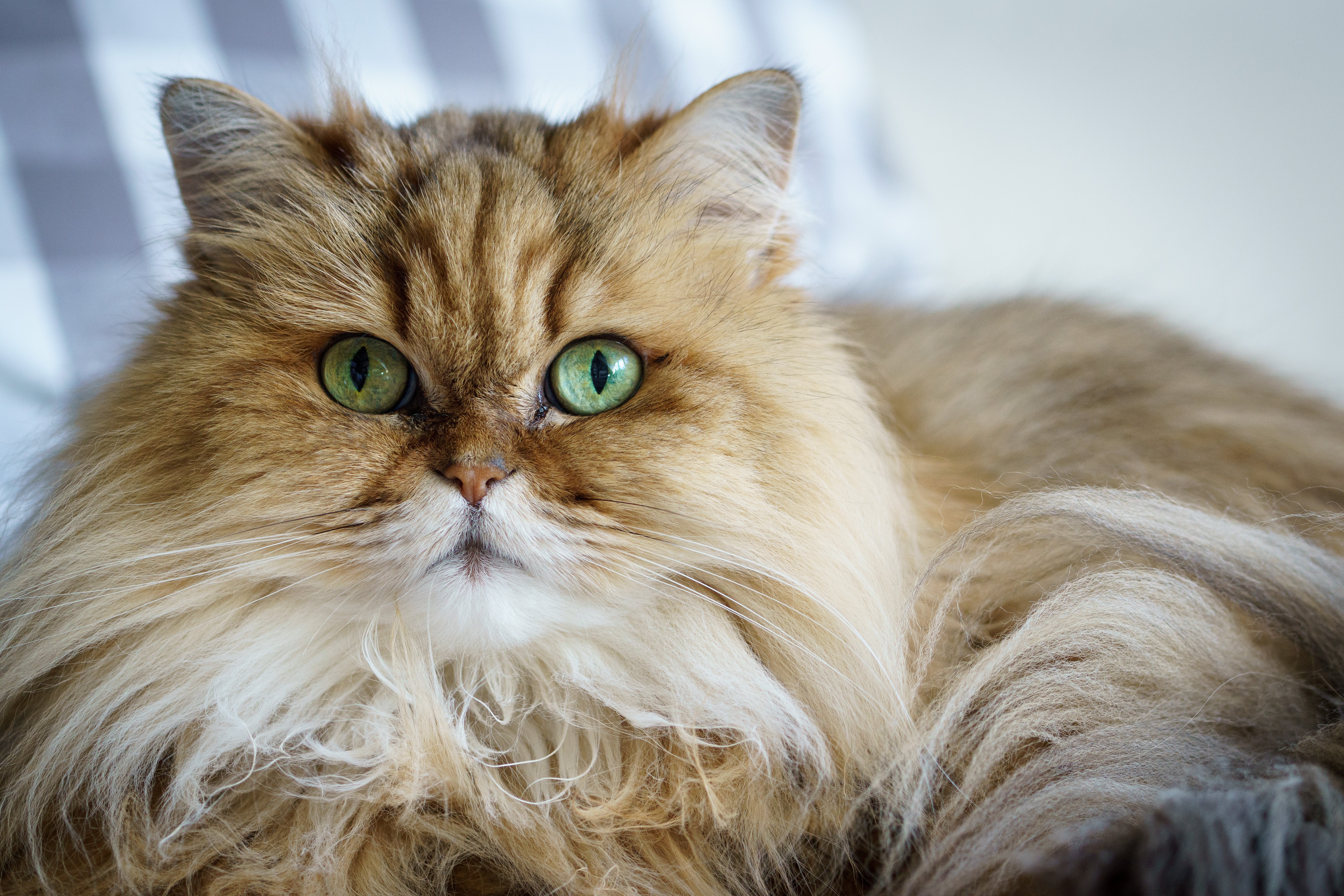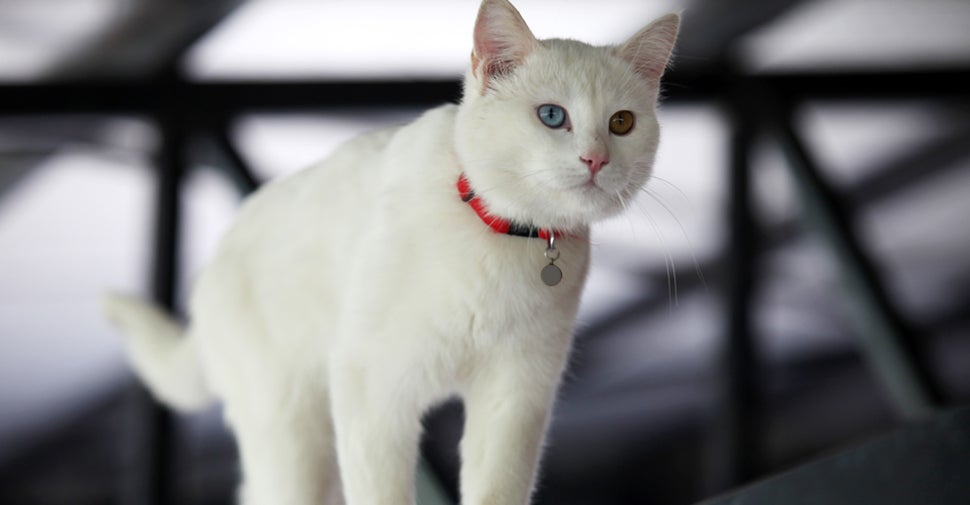Persian
With a sweet expression and mild temperament, the Persian is the most popular cat breed in America. It has large, round, and wide-set eyes that give it a curious and adorable look. They have higher maintenance grooming needs than other breeds, but their sunny and easy-going dispositions more than make up for the time commitment needed to groom them properly.
The Persian is a heavily boned, well-balanced cat with a sweet expression and soft, round lines. This cat has large round eyes set wide apart in a large round head. The long thick coat softens the lines of the cat and accentuates the roundness in appearance.
Breed characteristics carousel
Learn More
Need to Know
- Benefits from an experienced owner
- Quiet and sedate cat
- Calm cat
- Independent but friendly
- Quiet cat
- Average build cat breed
- Requires regular grooming
- Indoor cat
- Not ideal for family homes
- Can be left alone all day
- Needs a calm environment

Personality
Less life of the party and more stay-at-home and read, the Persian is a sweet, placid, and even-tempered cat. They enjoy regally lounging about, observing their owners, and getting in small bursts of energy through gentle games. They are intelligent but not as curious as some other cat breeds and are fiercely devoted to their humans, albeit selective in bestowing that honor on them. Trust and love must be earned, but once they are, they bond strongly. They crave attention and love being fussed over like a newborn baby but won’t beg for it like other breeds will.
Persian cats are one of the oldest cat breeds in the world, with hieroglyphic references to similar-looking cats found as early as 1684 B.C. The more modern version first appeared in the 17th century. Researchers believe the recessive gene for long hair appeared spontaneously via mutation in the cat population in the cold mountainous areas of Persia.
They were exported to France and England, where they quickly became popular. Blue Persians were particularly prized, thanks in part to Queen Victoria’s famous two cats. They were brought to America in the late 1800s where they found immediate popularity. They are the most popular cat breed today. There are several types of Persian cats, including the Longhair, Chinchilla, Doll Face, Exotic Shorthair, Himalayan, and more.
If your home is loud and chaotic with small children or other pets, it might not be the right fit for the relatively quiet and delicate Persian. They like owners who will admire and love them, including partaking in some high-maintenance grooming. They are ok with the owners who leave the house.
Persians are indoor cats that never need to go outside, although they might like a short stroll close to the house on occasion. They are too easygoing, not athletic, and not confident enough around other cats to prowl freely. While they don’t require something as fancy as a sheltered cat run, they could benefit from the exposure. They prefer to gaze longingly at their owners in a sunny spot for most of the day and be pampered by them.
Persians don’t need anything super athletic such as a cat run—they’re more inclined to be couch potatoes, curled up next to you. They do well in smaller spaces.
They have long, thick coats, short and stocky bodies, and flat faces, making it hard for them to groom themselves effectively, so they’ll need assistance from their owners. Eyes and faces should be cleaned daily and under the tail after each trip to the litter box.
While they can be left alone, Persians do enjoy the company of their owners. They love companionship and admiration over engaging in fast-paced games. Gentle activities can help prevent weight gain and stimulate their minds without overwhelming them.
Persians thrive in low-chaos homes—think of them more as introverts than extroverts. They are happy to be left while owners are at work or away, but they do need daily grooming maintenance which is a commitment.
The cost of a Persian cat from a breeder is significantly more than the cost of adopting one from a local shelter or rescue. The adoption fee usually covers additional items such as spaying or neutering, vaccines, and microchipping.
Adopting a Persian Cat
Interested in adopting a Persian cat ? Here are answers to some common questions about bringing one of these charming cats home.
Personality-wise, Persians shine as sweet and sociable felines. However, they are prone to health issues, so they’ll need more care in this respect than other cat breeds.
It all depends on the personality of your particular cat, but most Persians enjoy alone time, including at night.

Learn more about feeding and caring for your Persian on Purina.
Did You Know?
- Persians have always been popular with celebrities and royalty. Some of the most famous Persian owners include Marilyn Monroe, Freddy Mercury, Florence Nightingale, and Martha Stewart. Florence Nightingale is said to have owned over 60 through her life.


